Corpus Christi Blog
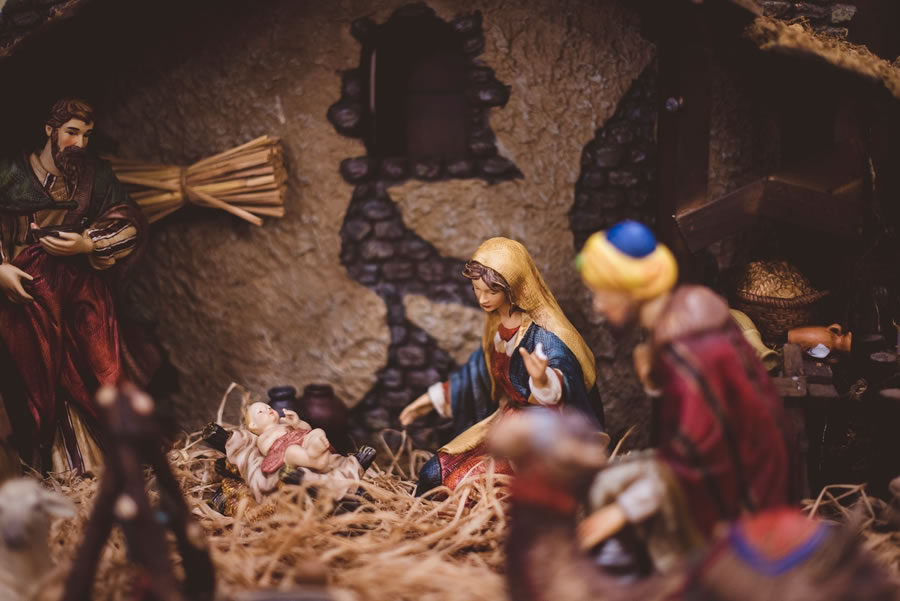
Feast of the Holy Family
12-29-2019Weekly ReflectionPope St. John Paul IIDear Brothers and Sisters,
1. On this first Sunday after Christmas, the Church is celebrating the Feast of the Holy Family.
As at the crib, in a glance of faith we embrace together the divine Child and the persons beside him: his most holy Mother and Joseph, his putative father. What light shines from this Christmas “group icon”! A light of mercy and salvation for the whole world, a light of truth for every person, for the human family and for individual families. How lovely it is for spouses to be reflected in the Virgin Mary and her husband Joseph! How comforting for parents, especially if they have a small baby! How enlightening for engaged couples, struggling with their plans for life!
To gather round the Bethlehem grotto contemplating there the Holy Family, enables us to appreciate the gift of family intimacy in a special way, and spurs us to offer human warmth and concrete solidarity in those unfortunately numerous situations which, for various reasons, lack peace, harmony, in a word, lack “family”.
READ MOREFeast of the Holy Family
12-28-2019HomiliesDcn. Chris KelloggToday we celebrate the Feast of the Holy Family. Jesus chose to enter the world as a baby, as part of a family. In this way, family life has been part of God’s plan for our salvation, a path to holiness. You might say well that’s easy for a family with two members who knew no sin and the third who was very righteous. But as we see in today’s Gospel, life was not easy for the Holy Family. They are not holy because they never struggled, never worried about what to do, never had problems. No, they are holy because despite their challenges and sufferings they kept trusting in God and His plan for their life. And the family is the path to holiness for most of us here. By placing our trust in God throughout the joys and struggles of married life we are called to grow in holiness.
Before exploring further marriage and family life, a short story. I heard this on Relevant Radio. There was a fireman, I believe from Ireland, who was asked to comment on the one thing that stood out to him the most throughout his career. He had this to say. Whenever I responded to a fire at a residence I could usually tell when a couple was married or just living together. When the couple was just living together, the man of the house would always get out even if all the other family members were not out yet. Whereas, if the couple were married the man of the house would not leave until the other family members were out of the house. That is the self-sacrificial love marriage calls us to.
READ MORE
The Importance of Prayer as We Prepare
12-22-2019Weekly ReflectionJen ArnoldAs our Advent reflections draw to a close, we should examine how our prayer life fits in with our preparation for the coming of Jesus. Prayer is how we communicate with the Triune God and is absolutely necessary when making a home for Him in our hearts. Imagine living in a home with someone – a spouse, or a child – and never speaking to them. In the context of Advent, imagine anticipating the person coming home from school or work and then saying nothing upon his or her arrival. We have an innate understanding that relationships, families, and homes require a regular practice of communication. Then, the depth and intimacy within that communication determines the depth and intimacy of the relationship. This is true for our relationship with God as well.
READ MORE
How the Sacraments Help Us Prepare
12-15-2019Weekly Reflection Jen ArnoldI mentioned in last week's reflection that we would dive a little deeper into other ways we can prepare for the coming of Jesus, both at Christmas and at His second coming at a me unknown to us now. This week, we'll take a closer look at how the Sacramental life helps to prepare us.
Most of us likely know the seven Sacraments of our Catholic Church: Baptism, Reconciliation, Confirmation, Eucharist, Marriage, Holy Orders, and Anointing of the Sick. However, what is a Sacrament and how do these things fit into the picture? Each of these seven Sacraments were instituted by Jesus Christ Himself and are the means by which visible actions and physical matter communicate supernatural realities and His grace to us and allow us to participate in the divine life (CCCC #1131). When we find ourselves in Heaven, we will no longer need physical signs because we will actually be living in the supernatural reality of the Trinity (CCCC #1130). For now, while we are here, Jesus wants to give us a foretaste of what is to come. These Sacraments are literal opportunities to participate in the divine life–in our physical bodies–while we exist in this physical world on Earth until everything is fulfilled at the end. So, with a proper understanding of the Sacraments, it is not difficult to see how regular participation in the Sacraments prepares us for what we will experience much more fully in the eternal Kingdom.
READ MORE
Sin vs Virtue
12-08-2019Weekly ReflectionJen ArnoldAs we continue our journey of preparation for the coming of our Lord, we must take a closer look at the thing that keeps us separated from Him – sin – and how to avoid it.
Sin occurs when we act in a way that is contrary to our love for God or our love of neighbor, and is therefore an act of disobedience toward our Lord, which then damages our relationship with Him and others (CCC #1849-50). The Church distinguishes between two types of sin – venial and mortal – according to their gravity. Venial sins are the smaller sins we all do every day. These sins damage our relationship with God, but they do not cut us off completely from His grace (CCC #1855). In other words, cursing at the person who cut you off in traffic hurts God’s heart, but you won’t be condemned to Hell over it. Mortal sin, on the other hand, is sin of a much more serious nature and will completely sever your access to God’s sanctifying grace until you are repentant and confess it in the Sacrament of Reconciliation. The result of continuing in a state of mortal sin without repentance is to spend eternity excluded from Christ’s kingdom (CCC #1861). Three conditions must be present to constitute a mortal sin: 1) it must be of grave matter, 2) it is committed with the full knowledge that it is in opposition to God’s law, and 3) it is done deliberately despite having full knowledge that it is wrong (CCC #1857-1859). In order to understand the different types of sin and the effects they have on our souls, I recommend reading The Catechism of the Catholic Church, paragraphs #1854-1864.
READ MOREReally Knowing Jesus Christ
12-08-2019HomiliesFr. Chad KingThis week and next, our Gospel will focus on the person of John the Baptist, and more importantly how he announces and reveals the fulfillment of the coming of Jesus Christ.
Now, raise your hand if you have a loved one, or at least know of someone who has fallen away from God and the practice of their faith? Chances are, they were raised to believe in God and his Son, Jesus Christ, and they might have grew up going to Church. Think about the many people who might only come to Mass this Christmas, what do you think they would say they believe in? They might know we celebrate the birth of Jesus, but to them the birth of this baby is really no different than any other little child. If Jesus is God, they might wonder: what makes Jesus God? Is it just the mighty works and miracles that Jesus later performed- the same miracles they may or may not believe what they read in the Bible to be true. Even so, they probably don’t know why Jesus is relevant in their lives today. What makes Jesus God? And why is Jesus and Christianity relevant and important to them today? Let us see how our readings today answer these questions.
READ MORE
Jesus is Coming!
12-01-2019Weekly ReflectionJen ArnoldWelcome to the first installment of our series of reflections for Advent. On this first Sunday of Advent, let’s take some time to first understand what Advent is and what it means for us, as Catholic Christians.
Most of us know that Advent is the period of time ahead of Christmas in which we prepare for the remembrance of the coming of the Incarnate Word in the form of a baby born of Mary. We enjoy decorating our homes, playing Christmas carols, and lighting the candles in our Advent wreaths to mark the passing weeks. Advent is a season of joy, anticipation, and patience as we wait for the Son of God to come, as promised, and save us. All of this is true and good, but there are some deeper layers to Advent that are worth exploring further.
READ MORE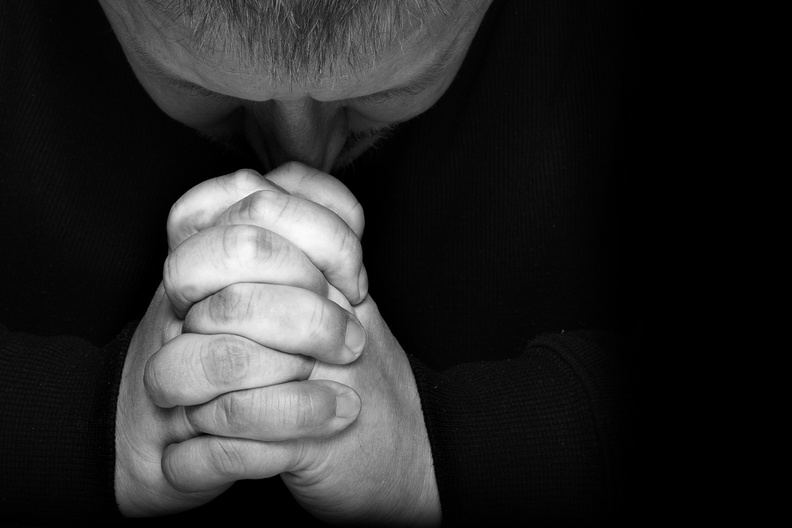
Ember Days
11-24-2019Weekly ReflectionPhilip KosloskiThe following excerpts are from an article on Aleteia.org written by Philip Kosloski on Mar 8, 2017: Do Catholics still celebrate Ember Days? And what ARE Ember Days?
“These special days of fasting were established very early on in the Church and are observed at the beginning of each season.”
“In the Western (Latin) Catholic Church there is an ancient liturgical tradition that revolves around the changing of the four seasons and consists of 3 days set apart for fasting and prayer. In Latin these days are referred to as Jejunia quatuor tempora (the fast of the four seasons), while in English they became known as “Ember Days” (from a corruption of the Latin word tempora). These special days of fasting were established very early on in the Church and consist of a Wednesday, Friday, and Saturday at the beginning of each season (Spring, Summer, Fall, and Winter).”
READ MORE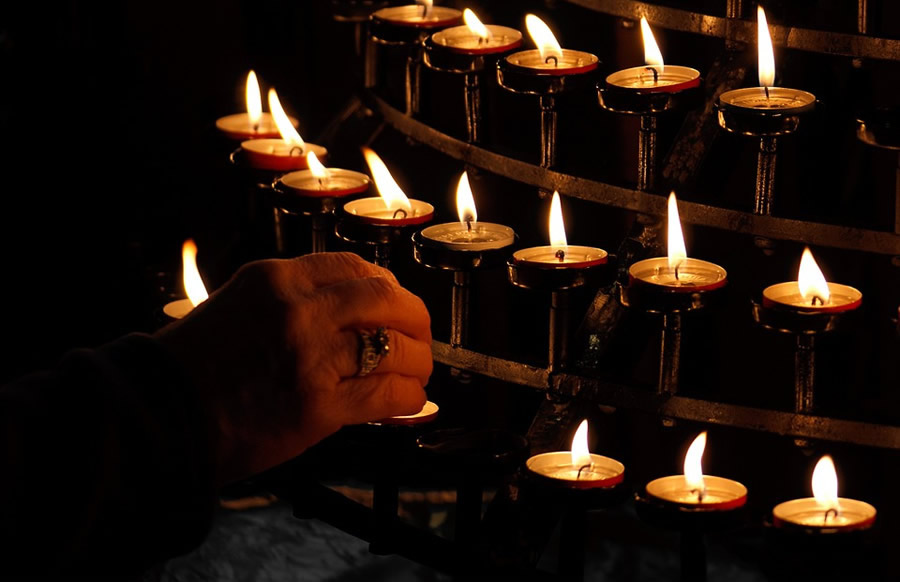
Deathbed Victories
11-18-2019Weekly ReflectionPatti Armstrong, © 2019 EWTN News3 Accounts of How Grace Conquers Sin, Even in Life’s Final Moments
Choosing conversion as eternity nears.
The deathbed is the final battlefield where eternal destiny is decided: heaven or hell.
It is the reason the Catholic Church offers the sacrament of last rites, to fortify souls with the sacrament of penance, anointing of the sick, and viaticum — Holy Communion as food for the eternal journey. Likewise, accounts of deathbed victories, such as those that follow, can serve as powerful food for thought and inspiration among the faithful — and for those open to the truth.
READ MORE
Purgatory
11-10-2019Weekly ReflectionFr. Chad KingThe month of November is dedicated to praying for the souls in Purgatory. Through Jesus’ Resurrection from the dead and Ascension into Heaven, every person has the opportunity to live with Him in Heaven. However, just because Heaven is now a possibility, it does not mean it will happen for all of us, and for many, it won’t be right away. The truth is, after death, entrance through the “Pearly Gates” is not automatically or immediately given to those who have some degree of faith in God or to those who have been a “pretty good person.” While it is true that after death, one either goes to Heaven or Hell, the Church has always taught there is a state of purification for the believers who are not yet ready to enter Heaven. This purification that souls undergo is what the Church calls Purgatory. In a special way this month, and indeed at every Mass, we pray for all the souls who are in purgatory, that are being purified in order to receive the gift of Heaven.
Every soul must choose Heaven. We must actively accept to be in perfect union with God in Heaven. At the moment of death, every soul has one last chance to repent of his or her sins and choose to live with God forever, or not. If a soul does repent, maybe even for the first time in the person’s life, then that soul receives the certitude of God’s love and mercy, and the knowledge they will one day experience the fullness of life and love in Heaven. But an unclean soul cannot enter into eternal paradise and experience complete unity with God. The consequences of an individual’s sin remains after death even though God has forgiven the person’s sins. Since the soul has thus received a glimpse of the immense glory of Heaven, and the light of God has revealed the darkness in the soul due to sin; the soul sends itself to Purgatory to be purified so as to be made ready to receive the great gift of Heaven.
READ MORE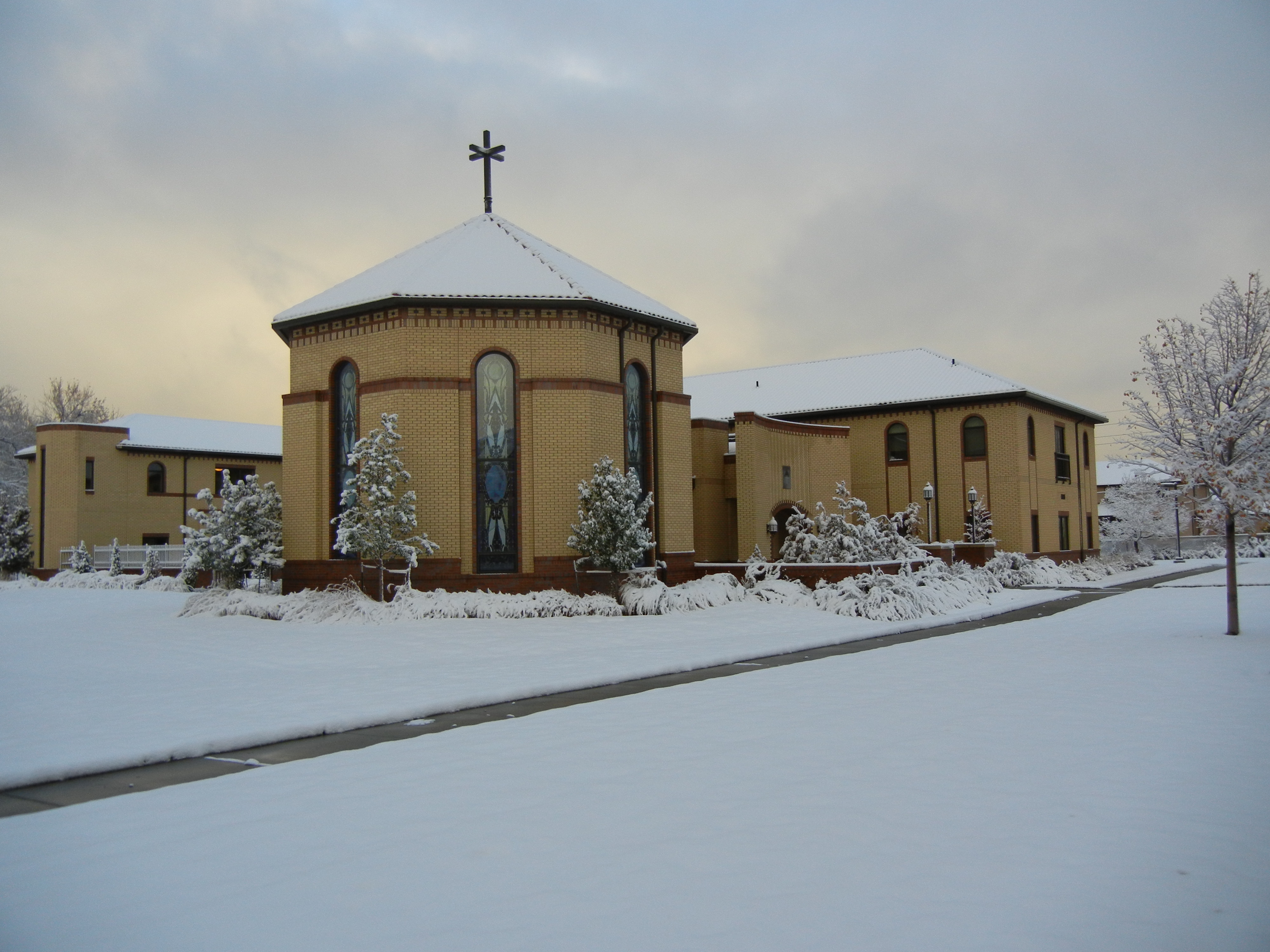
Life at the Seminary
11-03-2019Weekly ReflectionJeffrey PooleyDear Friends in Christ,
I am writing you from my dorm at St. John Vianney Theological Seminary, a place that seemed likea far off dream just over two years ago. As I was sittng on a friend’s couch in Chandler, the Lord askedwhat I was waiting for. I made one small act of faith and he hasn’t stopped working miracles yet!Thank you so much for welcoming me into your parish family. It truly has become my home awayfrom home!
I want to give you a glimpse into my life at seminary! We started the year with a seminary-widecamping trip in Southern Colorado. Our campsite was absolutely beautiful — I slept maybe 10 yardsfrom a stream and the sky was so free from light pollution you could see so many stars! It was a greatevent to be introduced to the seminary community and really experience the love the older seminarianshave for the younger guys. The number of times we were extended kindness that weekend mademe feel so welcomed and so at ease with all of the guys!
READ MORE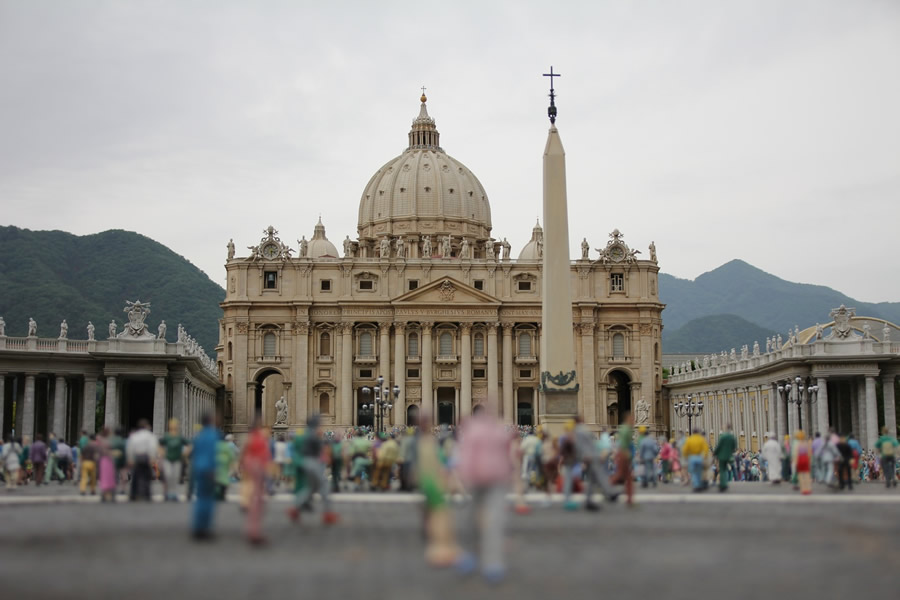
Italy Pilgrimage
10-27-2019Weekly ReflectionFr. Chad KingA couple of weeks ago, I, along with 20 Corpus Christi parishioners, Fr. Axline from St. Mary Magdalene in Gilbert, and 20 of his parishioners, returned from a 12-day pilgrimage to Rome and other nearby Catholic sites. I wanted to share some of my highlights from it.
Primarily, we went to support our seminarian, Nathaniel Glenn, as well as Gabriel Terrell from St. Mary Magdalene, and Marvin Soto, as they were ordained transitional deacons for the Diocese of Phoenix in St. Peter’s along with 32 other young men from various dioceses in the United States. Many parishioners said they saw the ordination on EWTN, and how beautiful it was. For me, one highlight was being in the procession with what seemed like at least 200 other priests from the US – a testament that the Church is in good hands with many young priests and many good seminarians. It was also great to see 10 Phoenix priests there to support the three Phoenix seminarians being ordained – a true witness to the fraternity of our presbyterate. I know that Jeff and Tina Glenn, along with Nathaniel, were greatly honored by the support of the parish, as well as Chuck and Alice Wold and the East Valley Serra Club, and our parishioners who were there in a special way to offer our love, gratitude, and prayerful support.
READ MOREIn our Gospel today we hear the tax collector’s simple prayer, “O God be merciful to me, a sinner.” This has been described as a complete summary of Christian spirituality. This prayer connects us with God because it recognizes two things. First, it acknowledges God’s greatest quality in relation to us a sinful people which is His mercy. Secondly it recognizes our need for that mercy for our own salvation.
Before we explore this further a story of God’s answer to one man’s humble prayer. Some of you may have heard this story about Catholic musician, Jacob Rudd. Jacob was in the seminary studying to be a priest. When a decision had to be made to go on from college seminary to major seminary he began to question whether God was calling him to the priesthood that he loved so much. Jacob had a deep devotion to St. Therese of Lisieux and asked her to send a rose to aid in his discernment: a red rose if he was called to marriage and no rose if he should continue towards the priesthood.
READ MORE
Baptized and Sent: The Church of Christ on Mission in the World
10-20-2019Weekly ReflectionPope FrancisMessage of His Holiness Pope Francis for World Mission Day 2019
By falling on the Sunday dedicated by the Church to its evangelizing mission in the world, today’s first reading, which narrates the battle between Amalek and Israel, might cause some embarrassment to those who want to talk about the importance of this Christian call. The text can be misinterpreted as a spur to holy war or a fanatic proselytism. On the contrary, mission aims at the proclamation of the Passover of Jesus and of the divine reconciliation he offers. Its purpose is to witness to Jesus Christ, to communicate his Gospel, to build up his Church, in a climate of sincere fraternity and authentic and respectful religious freedom in the common search for greater communion and justice in the world. Not to mention the fact that the Gospel also teaches us, through to the example of Jesus, to love enemies and pray for persecutors. The baptized and sent Christian does not have a product to sell to or impose upon the world. As the Church of Christ in mission, the believer receives divine life to proclaim, witness, and communicate for his own salvation and that of everyone else.
READ MORE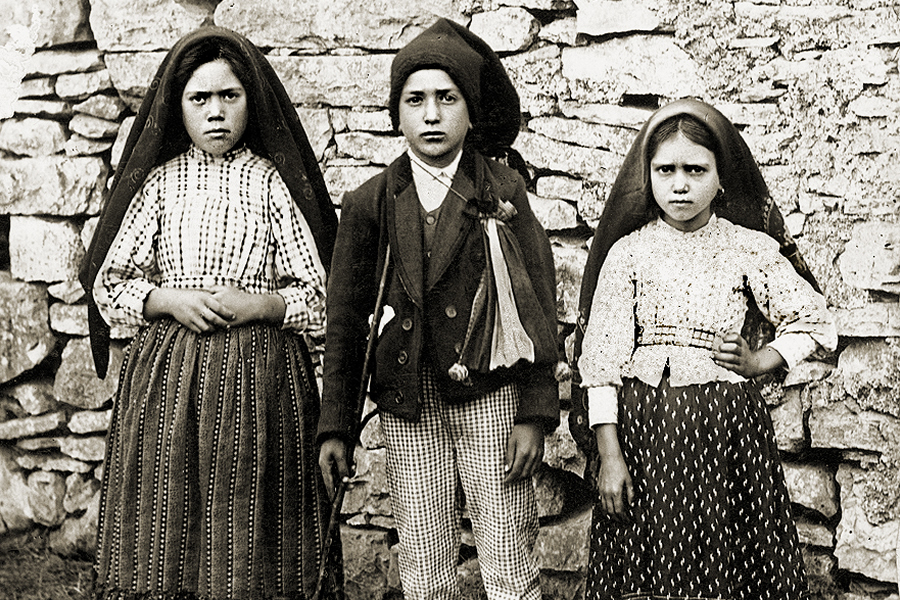
Our Lady of Fatima
10-13-2019Weekly Reflection©2017 EWTNIn 2017, a large group of parishioners traveled to Fatima, Portugal to celebrate the 100th anniversary of Our Lady of Fatima. Her consistent message of praying the rosary is still as important today as it was in 1917. October 13 is the 102nd anniversary of the Miracle of the Sun. Here is the story…
Despite the ridicule and jokes of the secular, atheistic press, more than 30,000 people gathered in the Cova for the September apparition. Whether drawn by devotion or curiosity, they prayed the rosary while awaiting the arrival of the visionaries and their vision. When at last the time came they could hear Lucia say,
“What do you want of me?”
“Continue the Rosary, my children. Say it every day that the war may end. In October Our Lord will come, as well as Our Lady of Sorrows and Our Lady of Mt. Carmel. Saint Joseph will appear with the Child Jesus to bless the world. God is pleased with your sacrifices, but He does not want you to wear the cords to bed. Keep them on during the day.”
“I have the petitions of many for your help. Will you assist a little girl who is deaf and dumb?”
“She will improve within the year.”
READ MORE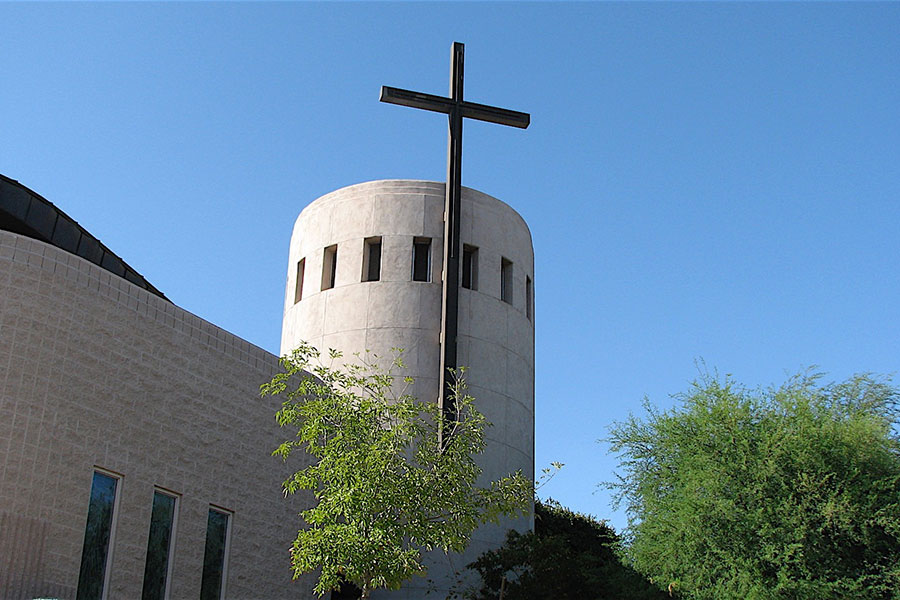
How Can a Pizzeria Be Like a Parish?
10-06-2019Weekly ReflectionFr. Chad KingA few weeks ago I had a dream. Usually I don’t remember my dreams, but this one I think God had me remember for a reason. I was somewhere other than Phoenix, as I recall it being cold.
I was going into a pizza and pasta restaurant with a couple of friends late at night. I was a priest, but I was wearing my casual clothes. We were the only ones in the restaurant as it was getting ready to close, but I knew the owner and he was OK with us coming in so late to eat. After we had been served, a homeless man came in asking the owner if he had any scraps of food he could give him. I overheard the conversation and saw that the owner was a little annoyed at the request and was about ready to turn him away. I motioned to the owner that I would buy him a meal. The homeless man barely looked up and nodded as to thank me. I smiled and nodded back then rejoined my friends and our conversation. A little bit later, I got up for some reason and noticed that the owner hadn't closed yet. I saw several other homeless people eating dinner too, and I realized that the owner decided to feed the other homeless people as well. I went over to him and shook his hand saying that he was doing a good thing and, knowing that when I went to pay our bill, I would give more to cover the cost of the first homeless man I said I'd pay for, I would also add a little more to help pay for the others who came in afterwards. One of my friends had noticed the other homeless people come in and the owner say something to each one of them. I looked around and there were about eight people sitting at various tables of the restaurant happily scarfing their food. My friend suggested that they were probably all sleeping in the abandoned building next door. We started discussing how sad that the guy or company who had bought the abandoned building to develop it didn't even know that he would be putting some homeless people out to try and find some other place for shelter from the cold wind.
READ MORE